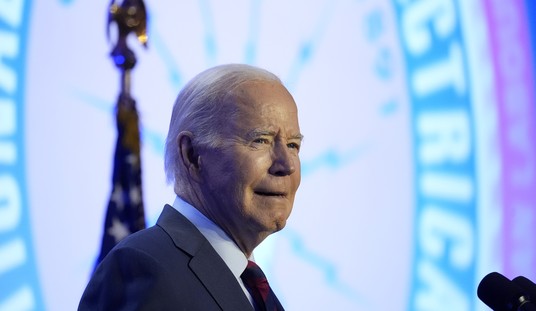Only a handful of the 22 House and Senate members to lose in either a primary or the last general election voted against the cromnibus.
Fourteen voted for it, seven opposed it, and one, Rep. Ralph Hall, a Texas Republican, did not vote.
With nothing to lose, outgoing legislators, whichever way they voted, no doubt had an easier time with their decision, said Tracy Carlton, a Republican political strategist.
“Some of them stuck to their guns, and said, ‘no way,’” he said. “Others saw the opportunity to fund pet projects one last time and took advantage of it. Who can blame them?”
That group includes Rep. Dan Maffei, a New York Democrat who lost in November but spearheaded funding in the National Defense Authorization Act for the Harriet Tubman National Historical Park in Auburn, N.Y. The NDAA goes hand-in-hand with the cromnibus as the government’s major spending bills.
Projects like the Tubman park drew the ire of fiscal conservatives. It’s not that a museum honoring the former slave, abolitionist and underground railroad legend might not be worthy. But funding of projects that have little, or nothing, to do with defense shouldn’t be in a defense bill, they say.
‘Land Grab’
What’s worse, says Sen. Ted Cruz (R-Texas), is that the project is part of an “extreme federal land grab” that puts hundreds of thousands of acres under federal control.
The NDAA provisions would designate nearly 250,000 acres of new wilderness, protect tens of thousands of additional acres from drilling and mining, and create a slew of new and expanded national parks and reserves.
The Tubman park provision, Maffei said in a statement, is “a huge victory for Auburn and all of Central New York.”
Therein lies the problem, conservatives and watchdog groups say.
“Everyone talks a good game about cutting spending and trimming the fat, but when it comes to their own district, God forbid anyone mess with the pork,” Carlton said.
Added a congressional aide for a Texas Republican, who spoke only on condition she not be named: “Every local project’s a ‘crucial’ project — a project that would be ‘devastating’ to lose. Problem is, every project is local to someone. Where does it end?”
Final Giveaways
Among the other provisions in the NDAA and cromnibus to rankle waste-watchers:
- Sen. Kay Hagan — another casualty of the November elections — made sure the NDAA included a provision to scrap the U.S. Air Force’s inactivation of the 440th Airlift Wing at Pope Airfield in her home state. As usual, “strategic importance” and “critical” defense needs were cited as reasons for the move. “I believe there is not a strategic case to be made for inactivation of the unit, which provides critical air support and ensures the readiness of units at Fort Bragg,” Hagan said in a statement.
- Rep. Ron Barber (D-Ariz.), who lost in November after just one term in Congress, scraped up enough support in his waning days in the House to save the A-10 — the primary aircraft flown at Davis-Monthan Air Force Base. One guess as to whose district the base lies in. Cost to taxpayers: $337 million for a program both the Air Force and Obama asked to be scrapped. Again, the language used to defend the funding makes it sound like the United States would be left defenseless without this and other programs. “It’s absolutely crucial that we pass this legislation to fund these vital services and programs for Southern Arizona families and service members,” Barber said.
- Maffei wasn’t the only ousted legislator to take advantage of the federal land acquisition in the NDAA. Sen. Mark Udall (D-Colo.), who also lost in November, took advantage of the land deal in the NDAA, adding a rider that designates about 70,000 acres of land in the San Juan National Forest in Colorado as the Hermosa Creek Special Management Area. The measure also puts 37,000 acres of national forest land aside as the Hermosa Creek Wilderness, and establishes the 461-acre Molas Pass Recreation Area.
- The cromnibus creates a bipartisan commission to study the creation of a national women’s museum. While it calls for the use of “private funds,” those opposing the cromnibus say it’s another example of an insertion into the spending bill that has nothing to do with spending. Senators Susan Collins (R-Maine) and Barbara Mikulski (D-Md.), and Congresswomen Marsha Blackburn (R-Tenn.) and Carolyn Maloney (D-N.Y.), were behind that add-on to the cromnibus.
- The Department of Agriculture proposed savings of $39 million to close unused or little-used farm service agencies. Legislators, however, thought it best to continue to fund empty office space. Not one dollar can be used to close FSA office space, under the cromnibus — even those that sit empty or provide duplicative services to an area. It’s not clear which legislator or, more likely, legislators, led the way in preserving the unused offices.
- Another $120 million in “upgrades” to the Abrams M1 tank program will be spent under the 2015 NDAA, thanks largely to Rep. Mike Turner (R-Ohio). The tanks are built in, you guessed it, Ohio. The problem is, the Army didn’t request the upgrades — and, in fact, did not want them. “We don’t need the tanks,” Gen. Raymond Odierno, the Army chief of staff, told a congressional panel last year. “Our tank fleet is 2-1/2 years old on average now. We’re in good shape, and these are additional tanks we don’t need.”
‘Business As Usual’
Rep. Joe Garcia, a Florida Democrat ousted in the fall, opposed the cromnibus. He said the bill, along with the NDAA, will be remembered as Congress conducting “business as usual.”
As he put it, “This was not a good faith effort to find a middle ground. The bill contained multiple special interest riders that did nothing but cater to partisan interests.”
Government watchdog groups, while still scrutinizing the two spending bills, are also setting their sights on 2015 and the 114th Congress.
Ryan Alexander, president of Taxpayers for Common Sense, says it’s difficult, but necessary, to remain optimistic.
“[That’s] the only way we survive as budget watchdogs,” she said. “[The 114th Congress has] a chance to start with a relatively blank slate. We urge lawmakers to roll up their sleeves, set aside electoral pandering, and start doing the peoples’ business.”
Considering the failures of the 113th, that may be setting the bar a trifle high, as Alexander herself seems to understand.
“The total spending level for fiscal year 2015 was set months before it would normally be known,” she said, “and lawmakers still couldn’t get the work done on time.”








Join the conversation as a VIP Member